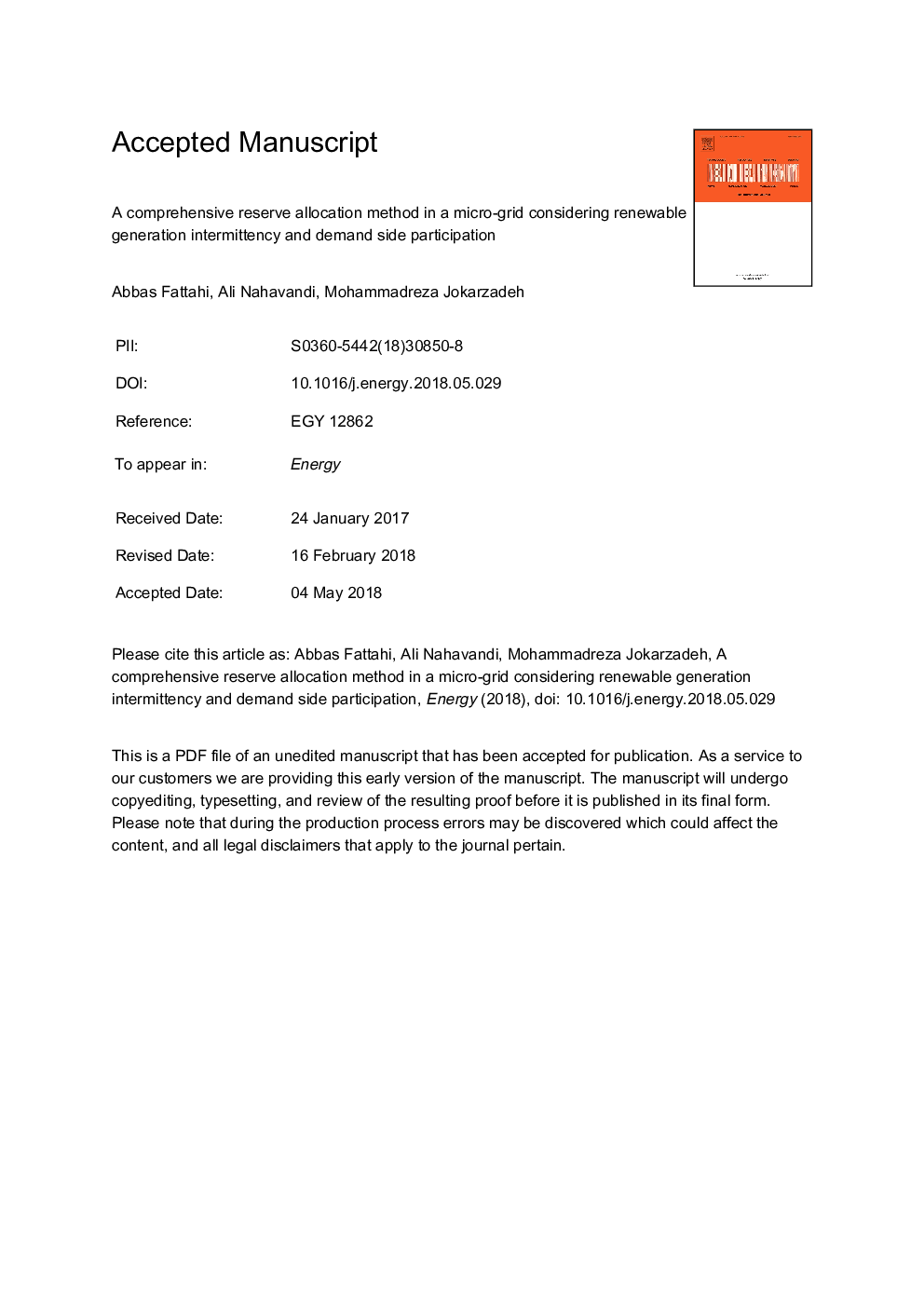| Article ID | Journal | Published Year | Pages | File Type |
|---|---|---|---|---|
| 8071480 | Energy | 2018 | 34 Pages |
Abstract
Due to the growth of renewable energy sources in power distribution networks, intermittent nature of these resources can reduce the reliability of the system caused by the lack of precise determination of required reserve in some hours of operation. In this paper, a new formulation of reliability indices is proposed involving the forecast errors of the renewable generations and multiple outage events of thermal and renewable units. The developed indices are applied to more accurate stochastic reserve allocation in a micro-grid. The customers are considered to participate in both energy and reserve day-ahead scheduling through price-based and incentive-based demand response programs. A new bi-level method incorporating particle swarm optimization and differential evolution algorithms is proposed to solve the problem. At the first level, optimal energy and reserve offers are found from the bids of demand side participants to maximize the profit of the customers and used in the second level to minimize the operating cost of the micro-grid. Obtained results from a case study on a typical micro-grid test system demonstrated that the proposed method allocate the optimal reserve to each provider in each reliability level defined by system operator, despite the intermittent and uncertain output of the renewable resources.
Related Topics
Physical Sciences and Engineering
Energy
Energy (General)
Authors
Abbas Fattahi, Ali Nahavandi, Mohammadreza Jokarzadeh,
